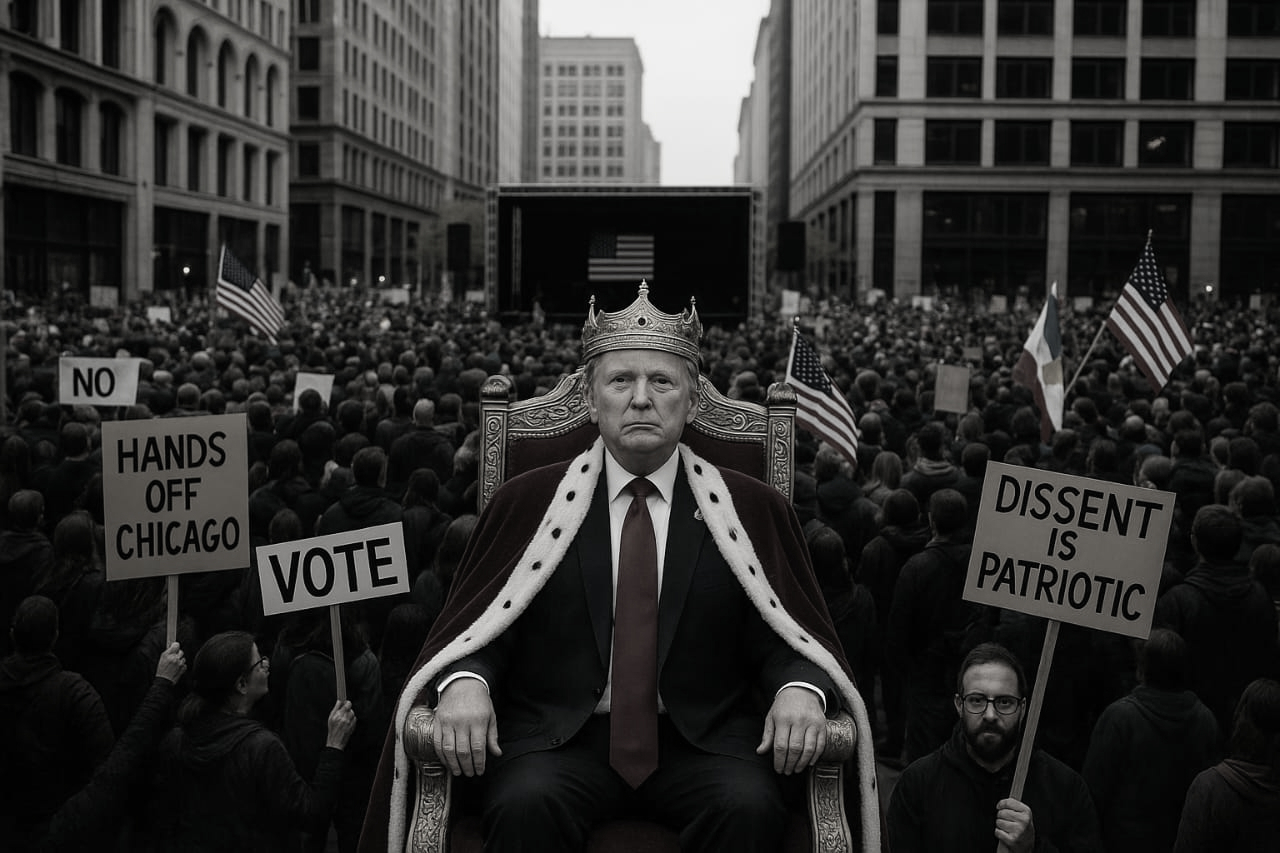
‘No Kings’ protest rock America
Nearly seven million Americans across 2,700 cities and towns participated in Sunday’s No Kings Protest, expressing widespread opposition to President Donald Trump’s administration and perceived authoritarian tendencies. The movement, which began in June after actor Robert De Niro criticized Trump’s “king-like” behavior, has grown into a nationwide campaign focused on government accountability, transparency, and democratic norms rather than seeking to overthrow the government. Unlike many past youth-led movements, the protest spans all age groups, highlighting broad-based concern for the preservation of institutional checks and balances.
From Chicago to Los Angeles and Washington, DC, protesters filled the streets carrying signs reading _“No Kings Since 1776,”_ _“Hands Off Chicago,”_ and _“Dissent is Patriotic.”_ Upside-down American flags symbolized distress, while Mexican and Pride flags highlighted opposition to Trump’s immigration and social policies. Federal employees rallied in the capital on Day 18 of the government shutdown, demanding calm political rhetoric. Despite massive turnouts, police reported the demonstrations remained largely peaceful, though National Guard troops and federal agents were deployed in select cities.
Protesters voiced frustration over political and economic issues. One Chicago participant said, “We fought to end rule by kings centuries ago. We will not let one man rewrite that history.” A Houston demonstrator added, “People can’t afford groceries while he’s playing emperor.” Senator Bernie Sanders addressed the crowd, declaring, “We rejected the divine right of kings in the 1770s. We will not accept it now. Democracy belongs to the people, not billionaires or monarchs in disguise.” Celebrities including Mark Ruffalo, Jamie Lee Curtis, Spike Lee, Glenn Close, Jimmy Kimmel, and Robert De Niro joined the demonstrations, urging Americans to defend democratic values.
Trump responded in a provocative manner. On October 17, he told Fox News, “They say they’re referring to me as a king. I’m not a king.” Yet just two days later, on October 19, he shared an AI-generated video on Truth Social showing him piloting a fighter jet labeled “King Trump” over Times Square, dumping mud on protesters and influencer Harry Sisson while wearing a gold crown. The White House also shared a screengrab of him in the crown, symbolically mocking the demonstrations. The video served both to ridicule the protesters and to project dominance, while critics argued it revealed Trump embracing the authoritarian image he publicly denied.
Trump’s administration often prioritizes personal business interests over public service. Controversial deals such as the Qatar gift, Pakistan cryptocurrency agreements, and his close relationships with key allies or “golf buddies” in positions of power over Congress and the judiciary have raised concerns. His interactions with Federal Reserve Governor Jerome Powell, destabilizing trade wars, bullying other nations including India, attacks on journalists, public insults toward leaders like Joe Biden and Barack Obama, claims of accolades such as the Nobel Peace Prize, and links to Epstein files have reinforced perceptions of unaccountable governance.
The No Kings Protest underscores Americans’ refusal to accept authoritarian-style leadership and the blurring of government and personal business interests. Citizens emphasize accountability, civic engagement, and the protection of democratic institutions, rejecting the notion of leaders above scrutiny. A Los Angeles participant said, “This is not about left or right. It’s about whether we are citizens or subjects.” Millions marched peacefully across the country, reaffirming that public voices and democratic norms remain central to American society, even amid provocative leadership and political theatrics.
